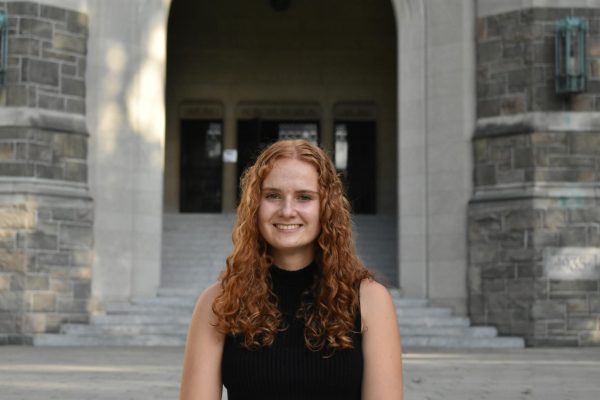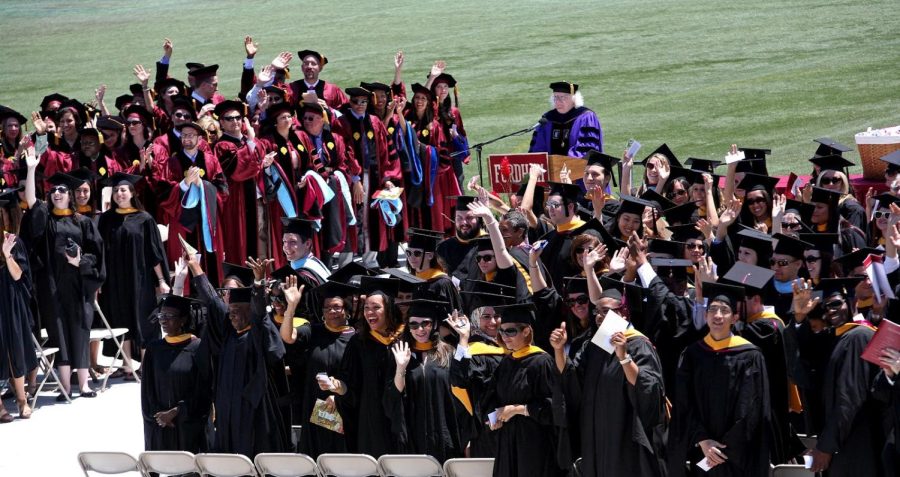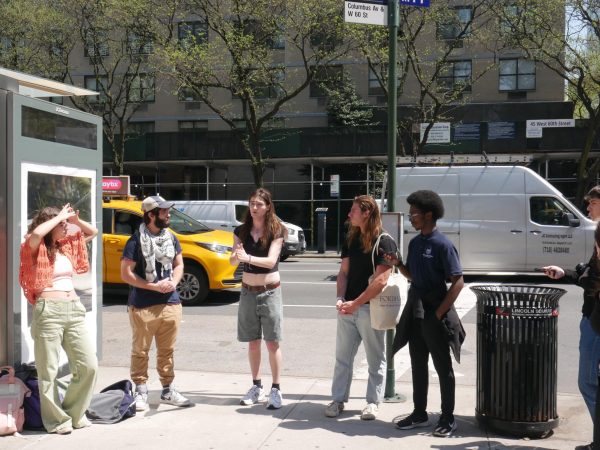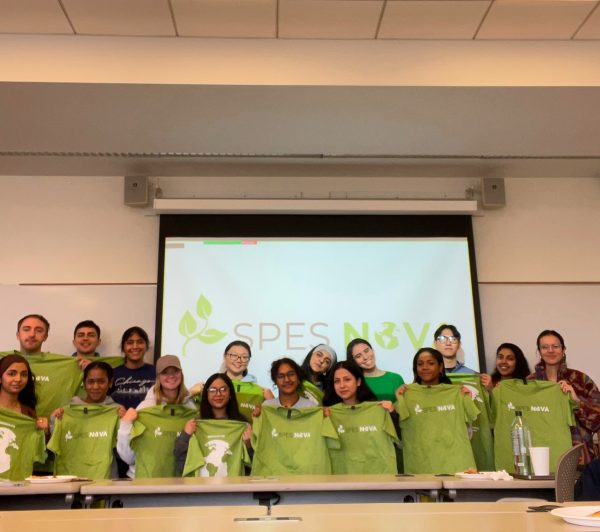Study Looks at Mental Health in Graduate School
A recent study of mental health among Fordham’s Graduate School of Arts and Sciences (GSAS) student population categorized 71% of the student population as depressed and only 27% as satisfied with their life. The number was even higher in Ph.D. candidates with 85% scoring as depressed, 53% scored as having some sort of anxiety disorder and only 18% scoring as satisfied with their lives. It was also found that students who identify with the LGBTQ+ community or as having a disability had a higher than average rate of scoring as depressed at 84% and 85%, respectively.
Nicholas Sooy, a sixth-year Ph.D. candidate in the philosophy department commissioned the study in 2020. Sooy was hired as a higher education leadership fellow, a program aimed at teaching graduate students about higher education administration, and was tasked with the job of creating wellness initiatives. According to Sooy, he proposed this study to help plan wellness events because of his background knowledge that there is a general trend of mental health struggles in graduate students across the country.
“I know there’s been growing awareness among administrators that there is a crisis in graduate education. The data that was out there prior to this particular study suggested that around 35% of graduate students were suffering from depression and around 41% suffered from generalized anxiety. The global population numbers at the time were around 6% for each [disorder], so it was significantly higher among graduate students,” said Sooy.
According to Sooy, the data collected from Fordham’s GSAS students reports “by far the worst numbers” of mental health issues among graduate students. However, Sooy does note that Fordham’s study was being conducted during the COVID-19 pandemic, while other studies were done before.
The pandemic exacerbated mental health concerns for everyone, possibly contributing to the study’s findings.
To Sooy, and other graduate students, the result of this study was not surprising.
“I applied for the position [of higher education leadership fellow] because as a graduate student, myself, I’ve struggled with all of these things and I’ve seen many of my peers struggle with it,” said Sooy. “One of my best friends was in a Ph.D. program and had to leave because it just brought on very severe depression, and I’ve had a number of other friends and colleagues to have had to leave for graduate programs for similar reasons.”
For Marc Arteaga, a GSAS student, incoming president of the Graduate Student Council (GSC), previously known as the Graduate Student Association (GSA), these numbers were alarming, but not, however, very surprising.
“What’s upsetting to know about 71% is the fact that we don’t know, we don’t really have any systems in place to kind of tackle [it],” said Arteaga. “The conversation continually feels to be as if we’re just talking about recognizing [the mental health crisis], even though I think that everybody knows everybody’s going through it.”
Arteaga notes that there have been many changes in GSAS over the last few years as well as the university as a whole. GSAS has had three deans within the last two and a half years. Additionally, the university in the fall will be welcoming a new university president.
For Arteaga, this constant change serves as an opportunity to rethink the structures within the graduate program.
“These are all things that I think speak to a level of change that’s currently happening. But personally, I’m a little hopeful because I think that if precedents are changing and there’s a lot of changes happening within the university, [then] this is the time where foundations can be laid for something better to occur,” said Arteaga. “I’m actually hopeful because in the change, perhaps we can throw in positive things for graduate students there.”
Both Sooy and Arteaga acknowledge the need for institutional change in order to address the mental health concerns that the survey reveals.
“We need to expand mental health care, physical health care [and] wellness options, ways to deal with career anxieties [and] all the different factors we identified, but you can only treat symptoms of individuals so long before you need to just overhaul the system,” said Sooy.
Arteaga said that the GSC aims to advocate for the needs of graduate students. According to Arteaga, conversations with Dr. Jeffery Ng, director of counseling and psychological services, about how to tailor CPS to graduate students’ needs have already begun. Arteaga said that while many graduate students are aware of CPS, they hesitate to use it because they feel that the services are more suited to undergraduate students.
Arteaga stressed that especially graduate students who teach undergraduate classes worry about potentially running into their students at CPS.
“One of the things that I want to stress to the graduate student body is that from the graduate student council perspective, we are committed to advocating as much as possible for the collective interest of all graduate students. That’s kind of like the main message that I want to impart as we move forward in the summer and in the new academic year,” said Arteaga.

Isabel Danzis is a senior from Bethesda, Md. She is double majoring in journalism and digital technologies and emerging media. The Ram has been a very...











































































































































































































